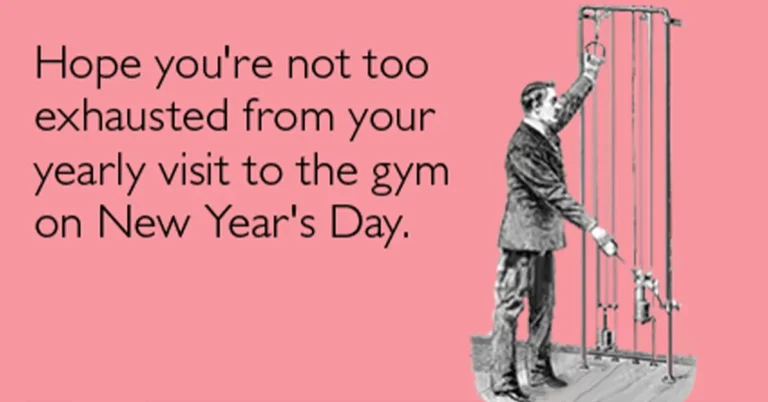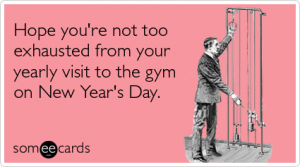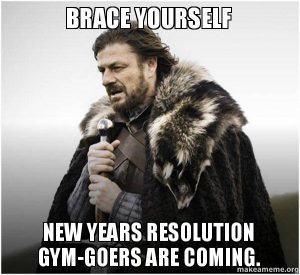Why do we see an increase in patients injured trying to do the right thing after New Year?
The human body has a fantastic capacity to adapt to physical stress. The physical stress placed on the body during exercise is good for us all, so why does it often lead to injury? Well the simple fact is there is a rate at which overloading tissues in the body (which can vary with factors such as age for example) causes healthy adaptation and the tissues become stronger or healthier as a result, but overdo the frequency and the intensity of exercise and the body simply can’t cope.
The tissues have a healthy internal process called remodelling where tissues listen to what you are asking of them, breakdown as a result of exercise and reform stronger. The rate at which this occurs is often overlooked when we head off to the gym with the keenness of that New Year’s resolution ringing in our ears. Simple training errors mean that a rapid acceleration into a healthy activity program leave to the body failing to cope. We commonly term it an overuse injury and they make up over 70% of the soft tissue injuries we see, although most of our patients suspect we see traumatic injuries where the tissues are suddenly overloaded from a single unlucky incident. That is simply not the case, they are relatively rare.
Can overuse injuries be prevented?
Yes – with a strong dose of common sense, a proper training plan and by listening to your body, most of these can be prevented. Remember it is not a case of ‘No pain no gain’, whilst we expect the tissues to be a bit stiffer or sorer when they have done something they are not used to, that does not include long lasting pain after your gym sessions. Build your exercise levels slowly with small percentage increases over time, as you feel the session is less difficult. It is not meant to be easy but neither is it meant to cause harm!
What’s the best advice to prevent New Year injuries?
- Yes exercise – its good for you (a simple sprain or strain because you overdid it is a small price to pay when you can reduce your chances of heart disease, cancer, arthritis, back pain to name a few!)
- Plan a simple program (ask your physio, PT, gym supervisor for some help)
- Learn the correct techniques
- Warm up
- Listen to your body and don’t fail to find the intensity, frequency etc that is right for you.
- Seek the advice of a physiotherapist if you make a mistake and overdo it. We often don’t ask you to rest completely, but modify your plan, so you can keep going to the gym.




